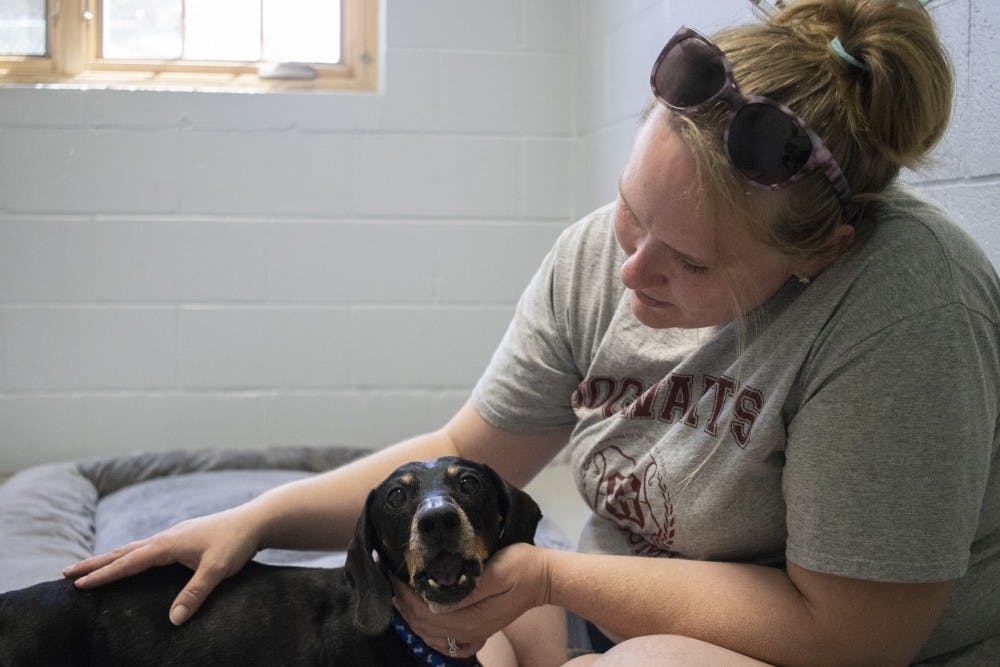Choosing a dog to take home from the shelter can be difficult. New IU research can help explain why.
Samantha Cohen, a post doctoral research associate at the University of Virginia, led the research on dog adoption during her time at IU as a Ph.D. student with the help of IU cognitive science, psychology and informatics professor Peter Todd.
Cohen said her research had two goals: observing how humans choose dogs and tackling animal overpopulation.
"There are a lot of reasons that people make the choices that they do," Cohen said. "Some of them are influenced by what people think they want."
The researchers looked at how physical traits such as age and size and emotional traits such as intelligence and friendliness influence dog choice.
Cohen said there are five different traits that highly influence which dog is chosen. Age, sex, playfulness, size and intelligence are the most important qualities to those who preferred those specific traits in their adopted dogs.
Cohen's volunteer work at Bloomington Care and Control as an adoption counselor and Todd’s previous research on romantic partner choice inspired the study. They were interested in seeing if the way people choose which dogs to adopt is similar to how people choose who to date.
Cohen worked alongside Todd, Bloomington Care and Control and approximately 15 undergraduate students.
Todd said the study observed the features people thought they wanted in a dog. Then once the adopter weighed his or her preferences, the research looked at which dog he or she took home.
"Those preferences that people tell you matter, it's not clear that those determine their choice," Cohen said.
Julia Eppley, the shelter manager of Bloomington Care and Control, said adoption choice is often based on lifestyle and personal feelings.
"Just like people are individual, animals are individual," Eppley said.
Eppley said it can be hard to match dogs with adopters. There are times when adoption counselors think the match may not be a good fit by watching the family and knowing the dog's past. Eppley said adoption counselors work through the problem by being available to help after the adoption and adding additional resources to the adoption packet.
"Our adoption counseling is the first step to make sure folks are really thinking it through," Eppley said.
Eppley said researchers would ask people adopting at the shelter if they wanted to participate in the study. Adopters generalized the qualities they were looking for, and this research allowed the shelter to determine which qualities mattered the most.
"It's important to see if there are ways to improve this process because sometimes the process doesn't work out well for one or more of the parties," Todd said in an email to the Indiana Daily Student.
Todd said he hopes this research can prevent dogs being returned to the shelter after adoptions and can help find homes for those dogs who are facing life in the shelter. Both Cohen and Todd said they think it would be interesting to see similar research be applied to other shelter animals.
"Helping people to realize what are the important aspects of adopting will help them to make choices they are happier with," Todd said.




